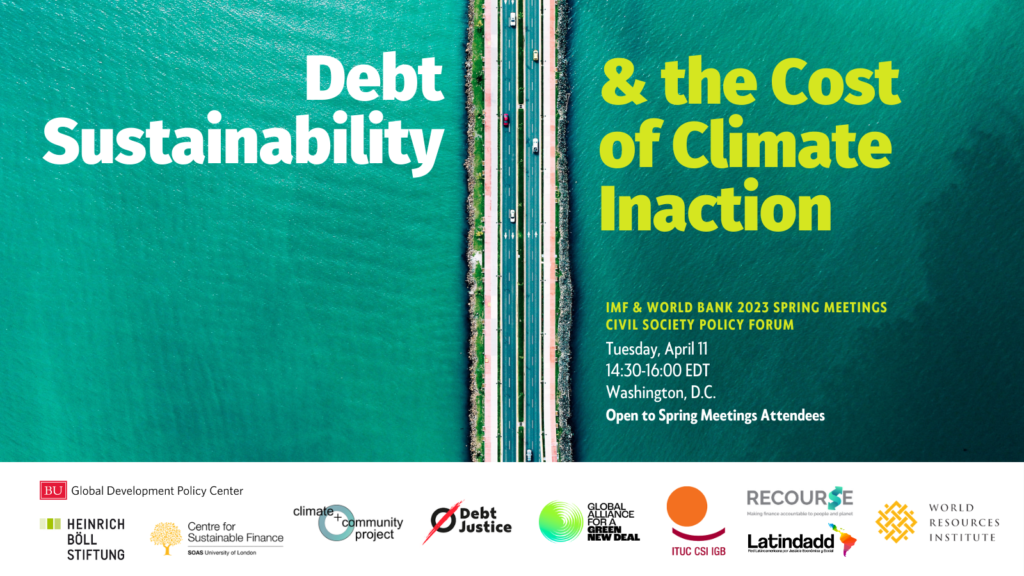
Debt Sustainability and the Cost of Climate Inaction
Research from the International Monetary Fund (IMF) emphasizes the high costs of delaying climate action and investments toward building resilience. With two-thirds of low-income countries already in or at high risk of debt distress, however, such investments are increasingly out of reach, particularly for climate-vulnerable developing countries.
Balancing climate investment needs with the costs of delaying action has implications for assessing long-term debt sustainability, and it is further complicated by the fact that debt is often the only option for countries to pay for loss and damage following a disaster.
On Tuesday, April 11 from 2:30-4:00PM, an expert panel at the IMF/World Bank 2023 Spring Meetings Civil Society Policy Forum discussed the IMF’s role in adapting debt sustainability assessments to reflect the cost of climate inaction and incorporate equity considerations.
Cosponsors included the Climate and Community Project, Debt Justice; Global Alliance for a Green New Deal; Heinrich Boll Foundation; the International Trade Union Confederation; Latindadd; Recourse; the Centre for Sustainable Finance at SOAS, University of London, and the World Resources Institute.
Speakers:
- Lars Jensen, Senior Economist, Global Policy Unit, United Nations Development Programme
- Carola Mejia, Climate Finance Analyst, Latindadd
- Ulrich Volz, Director, Centre for Sustainable Finance at SOAS, University of London
- Manrique Saenz, Depute Division Chief, Strategy, Policy and Review, International Monetary Fund
- Maureen Heydt (moderator), Assistant Director, Communications, Boston University Global Development Policy Center
Location:
IMF HQ2-03B-768B, Washington, D.C.